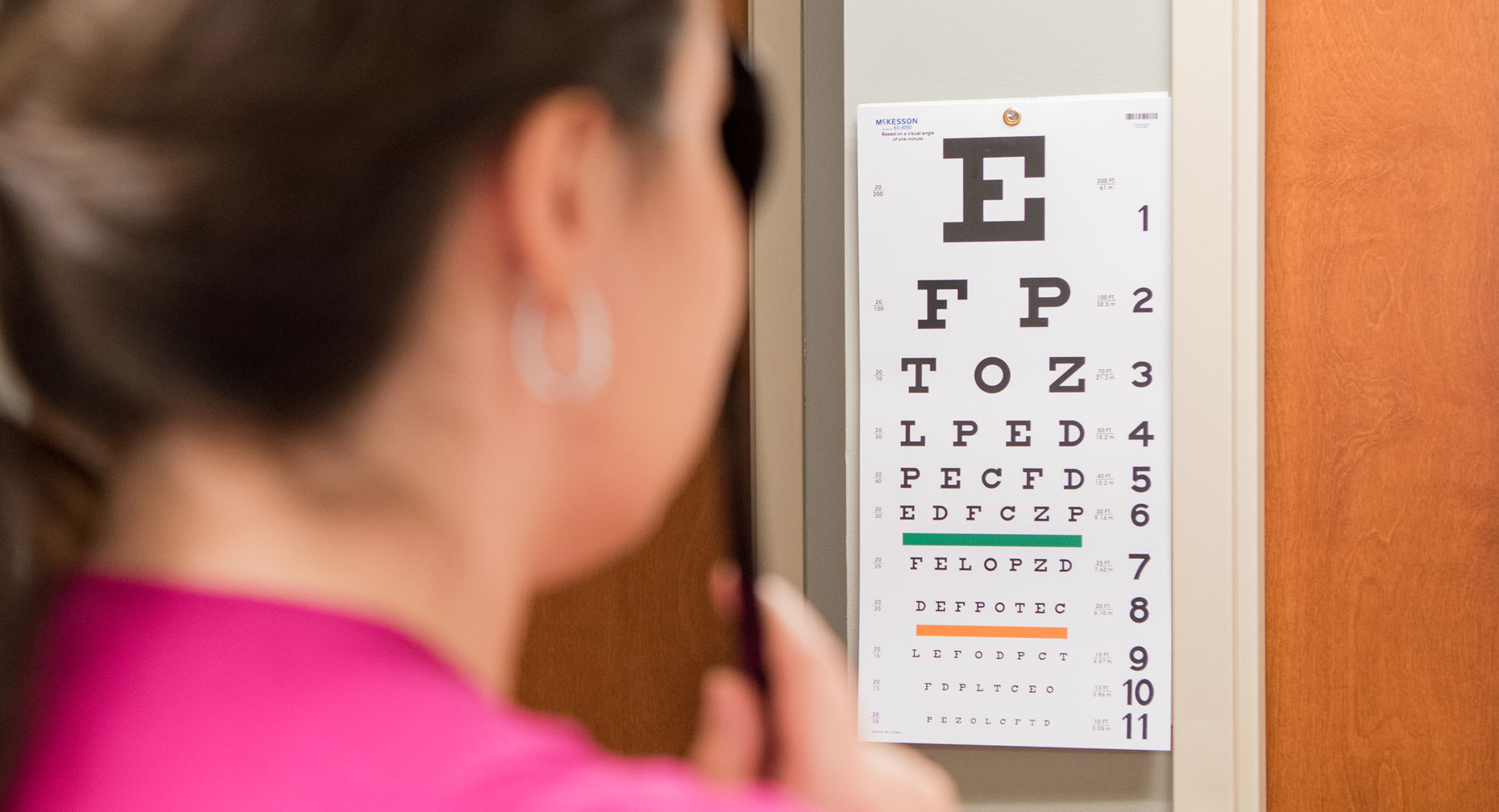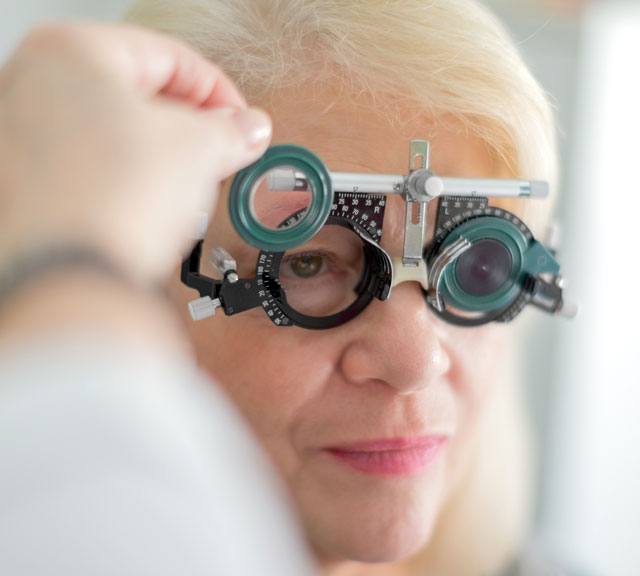The Eyes Have It at Your Essential Eye Exam

Find Your Perfect Match
Answer a few questions and we'll provide you with a list of primary care providers that best fit your needs.
Say the words “eye exam,” and you may think immediately of the big “E” on the chart in the doctor’s office. But a comprehensive eye exam involves more than just reading rows of letters. Even if your vision is 20/20, getting your eyes checked regularly is important.
Many eye problems are easy to overlook because there aren’t any obvious symptoms. Your eye doctor can spot the signs that signal trouble, and put you on the path to better sight. That’s why it’s wise to make an eye exam part of your regular health routine to catch and treat any issues early.
What Happens During an Eye Exam?
Your doctor will start by asking about any eye or vision problems, medications you are taking and your general health. Just like your annual physical, your doctor needs to view the big picture of your medical history.
Your doctor will also perform tests to check for conditions and diseases that can affect vision. They can include:
- Vision tests. These measurements tell you how clearly each eye is seeing. You will be asked to read from charts of letters.
- Preliminary tests. These can include checking your depth perception, how well you see color, eye muscle movements, your side (or peripheral) vision and how your pupils respond to light.
- Keratometry. This test measures the curve of your cornea (the clear outer surface of the eye). If you wear contact lenses, it helps determine the proper fit.
- Refraction. This checks your ability to see clearly and focus your eyes. Your doctor will place a series of lenses in front of your eyes and have you read an eye chart from a distance. This determines if you need corrective lenses.
- Eye health evaluation. Your doctor may perform additional tests to confirm or rule out possible problems.
At the end of your exam, your doctor will evaluate the test results to determine a diagnosis. She will discuss with you any vision or eye health problems and explain treatment options. If needed, she can refer you to a specialist for additional consultation or care.
Many eye problems are easy to overlook because there aren’t any obvious symptoms.
Why Do I Need My Eyes Dilated?

It’s annoying to deal with the blurry aftereffects, but having your eyes dilated is an important part of the exam, and can help your doctor detect telltale signs of vision problems and eye diseases. Some can be serious, and even cause vision loss and blindness.
Before she conducts certain tests, your doctor will put special drops into both eyes. This widens the pupil and lets in more light. Using a special magnifying lens, she’ll take a look at internal structures at the back of the eye.
It takes about 20 or 30 minutes for your pupils to open fully. Once they are dilated, your vision will be fuzzy and it will take a few hours before your sight returns to normal. Your eyes also will be extra sensitive to bright light. It’s a good idea to bring sunglasses, or even arrange for someone to drive you after your appointment.
Who Needs a Comprehensive Dilated Eye Exam?
Dilated eye exams are especially important for:
- Seniors age 60 and older
- African Americans starting at the age of 40 because they have a higher risk of glaucoma, a disease that damages the optic nerve, which carries information from the eyes to the brain
- People who have diabetes, to screen for diabetic retinopathy, the most common diabetic eye disease and a leading cause of blindness
If you haven’t had an eye exam recently, schedule an appointment with your doctor. Remember, you have only one pair of eyes. Treat them with care and you’ll see clearly for a lifetime.
Find Your Perfect Match
Answer a few questions and we'll provide you with a list of primary care providers that best fit your needs.
Source: American Academy of Ophthalmology; American Optometric Association; The Vision Council; National Eye Institute (NIH)




